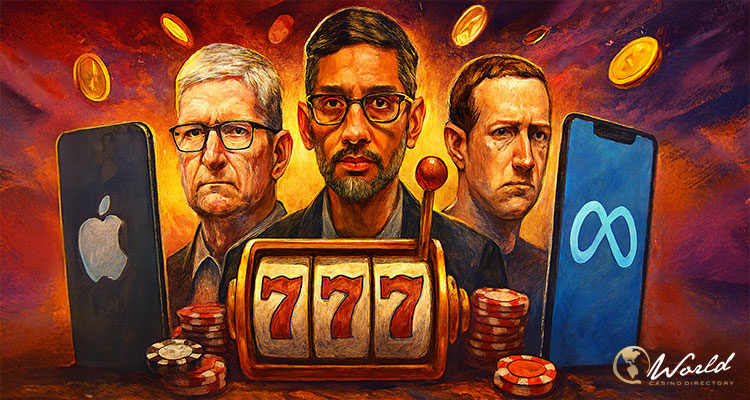A federal court has ruled that Apple, Google, and Meta Platforms must continue to defend themselves in lawsuits that accuse them of profiting from illegal gambling applications. The decision, issued Tuesday, September 30, by U.S. District Judge Edward Davila in San Jose, California, rejected the companies’ efforts to dismiss the proposed class actions by invoking immunity under Section 230 of the Communications Decency Act.
Allegations of Gambling Promotion and Profits
The litigation, which began in 2021, centers on claims that Apple’s App Store, Google’s Play Store, and Meta’s Facebook provided a platform for casino-style games that replicated “an authentic Vegas-style experience of slot machine gambling.” According to dozens of plaintiffs, the companies not only hosted these apps but also promoted them as part of an “illegal racketeering conspiracy.”
The suits further allege that the platforms acted as middlemen for transactions within the games, processing payments for in-app purchases of virtual chips and collecting up to 30% in commissions. These commissions are estimated to have exceeded $2 billion. Plaintiffs contend that the defendants knowingly exploited users, leading to harmful consequences such as depression, suicidal thoughts, and addiction.
While the lawsuits demand compensatory and triple damages, the total amount sought has not been specified.
In his 37-page ruling, Judge Davila dismissed some claims tied to state law violations but allowed most allegations under consumer protection statutes to move forward, with the exception of those filed in California. He concluded that the defendants were not functioning as “publishers” when processing payments, which undermined their Section 230 defense.
“The crux of plaintiffs’ theory is that defendants improperly processed payments for social casino apps,” Davila wrote, as reported by Reuters. “It is beside the point whether that activity turns defendants into bookies or brokers.”
Davila emphasized that the companies’ provision of “neutral tools” for app developers did not shield them from responsibility. He also ruled that it was irrelevant whether plaintiffs had specifically labeled the companies as “bookies.”
The judge has permitted Apple, Google, and Meta to immediately appeal to the 9th U.S. Circuit Court of Appeals, citing the broader importance of the Section 230 legal issues involved. Earlier appeals in May 2024 were dismissed by the appellate court for lack of jurisdiction, but this new ruling opens the door for reconsideration.
Industry and Legal Implications
The outcome could have significant consequences for the technology sector, which has long relied on Section 230 protections to avoid liability for third-party content. Davila’s finding that payment processing falls outside that shield signals a potential shift in how courts may interpret the law in relation to platform liability.
For now, the cases will proceed under their formal titles in the Northern District of California: In re Apple Inc App Store Simulated Casino-Style Games Litigation, No. 21-md-02985; In re Google Play Store Simulated Casino-Style Games Litigation, No. 21-md-03001; and In re Facebook Simulated Casino-Style Games Litigation, No. 21-02777.
Apple and Meta did not respond to media inquiries following the decision, while Google, part of Alphabet, declined immediate comment. Lawyers representing the plaintiffs also did not issue statements on the ruling.



